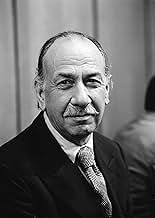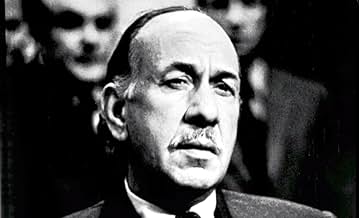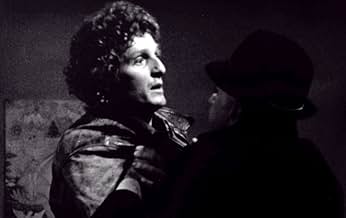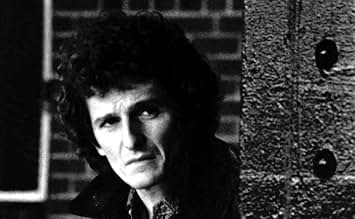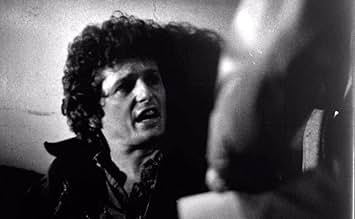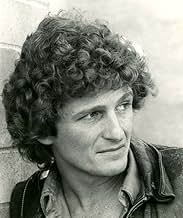Ajouter une intrigue dans votre langueA homicide detective begins to suspect that the black teenager accused of murdering two white girls is being framed by his fellow detectives.A homicide detective begins to suspect that the black teenager accused of murdering two white girls is being framed by his fellow detectives.A homicide detective begins to suspect that the black teenager accused of murdering two white girls is being framed by his fellow detectives.
- A remporté 2 prix Primetime Emmy
- 3 victoires et 4 nominations au total
José Ferrer
- Jake Weinhaus
- (as Jose Ferrer)
Avis en vedette
Who loves you, baby? Took in another TV movie with the excellent The Marcus-Nelson Murders (1973). Based on the true story of the murder of two girls in NYC and the law's attempt to railroad an innocent suspect, it also serves as the debut on Lt. Theo Kojak, a character that would go on to become an iconic TV detective. Creator-writer Abby Mann (Judgment at Nuremberg) sticks close to the 1963 Wylie-Hoffert murders and the course of events unfold with infuriating intensity. Telly Savalas is unusually subdued as Kojak, perhaps still full from chewing the scenery in Horror Express (1972). Director Joseph Sargent does a fantastic job of unpacking the complex story, even doing the opening murders in POV fashion and including some Rashomon-esque flashbacks as different stories are given for the interrogation. There is a stellar supporting cast including Allen Garfield as a prosecutor; Jose Ferrer as a defense attorney; Gene Woodbury as the accused; Marjoe Gortner as a junkie; Roger Robinson as a drug dealer; Lorraine Gary as Kojak's ex; and Ned Beatty, William Watson and Val Bisoglio as the detectives who illicit the false confession. It ends on a bleak note, but proves to be a perfect launch for the burned out detective who would soon be a household name. The saddest indictment here is that this is almost 50 years old and we're still dealing with the same issues. At least Harlem no longer looks like a bombed out war zone.
"The Marcus-Nelson Murders" is a made for TV movie set in the summer of 1963 that turned out to be the pilot for "Kojak". It's based on a real case, 'The Career Girl Murders' of Emily Hoffert and Janice Wylie, though names and a few other details have been changed. The film details the investigation as well as the misconduct by the New York Police Department, as the accused was denied his rights to an attorney and was forced into confessing for a crime he did not commit. This is a fact, as the real killer was eventually caught and later confessed to the crime...though the falsely accused man was also sent to prison for several years! The injustice of the case helped lead to the landmark Miranda Decision in 1966.
The story begins with two young women being attacked and viciously murdered by a psycho with a knife. One was also raped.
You never see who he is and the film shows the case from the standpoint of the police department...as well as from the investigator, Lieutenant Kojack (the name was changed to 'Kojak' for the TV series). Over time, he starts to wonder if the confession was infact coerced and if the young man is being victimized. Naturally, the Department is not thrilled with Kojack's actions and they just want him to just drop his inquiry...especially the prosecutor.
If you are expecting something like "Kojak", you'll probably be disappointed. Aside from Telly Savalas and a brief scene where George Savalas plays a reporter, the cast is entirely different from the TV show. This isn't good nor bad...it's just different. And, it's generally a very good film. My only quibble is a very small one...everything looks like 1973 instead of 1963...such as clothing and hairstyles.
By the way, this film came out the same year as "Serpico"...a true film about corruption within the New York Police Department.
The story begins with two young women being attacked and viciously murdered by a psycho with a knife. One was also raped.
You never see who he is and the film shows the case from the standpoint of the police department...as well as from the investigator, Lieutenant Kojack (the name was changed to 'Kojak' for the TV series). Over time, he starts to wonder if the confession was infact coerced and if the young man is being victimized. Naturally, the Department is not thrilled with Kojack's actions and they just want him to just drop his inquiry...especially the prosecutor.
If you are expecting something like "Kojak", you'll probably be disappointed. Aside from Telly Savalas and a brief scene where George Savalas plays a reporter, the cast is entirely different from the TV show. This isn't good nor bad...it's just different. And, it's generally a very good film. My only quibble is a very small one...everything looks like 1973 instead of 1963...such as clothing and hairstyles.
By the way, this film came out the same year as "Serpico"...a true film about corruption within the New York Police Department.
This generation of film makers are afraid to make something like this now. Distributors wont touch it.This should not have been a TV movie. Academy award worthy across the board here. The direction, the cinematography, one heck of a script, and you can take your pick of the actors whose performances went past the heart and right for the gut. The subject matter supporting the Kojak mythology puts the film right up there with any top civil rights documentary. I first saw it as the " The 3:30 movie" on channel seven in Chicago back in 74.I didn't know what I was looking at until I studied the King event. Abby Mann later wrote and directed "King" but this script is as close as you will get to a saturated gritty matter-of -fact telling of a story that still rightly embarrasses the legal system. I always wondered why the networks never bothered to show it again. I see why...and so will you.
I love true stories, especially this one. Based on the book by author Selwyn Raab, (a New York Times reporter) "Justice in the Back Room". This film was intense and very close to the book. The main character Louis Humes was played by Gene Woodbury who played the part perfectly as a shy uneducated black kid that was unjustly accused of an attempted rape, a murder in Brooklyn and also implicated in a double homicide in Manhattan. The newspapers in 1963 dubbed this as the Career Girl Murders. The film calls it the Marcus Nelson murders. The story rubbed me the wrong way because at the end, the narration said Humes was still in jail. It also said the prosecutor was elected an assemblyman. I wanted to know about this and read the book. Humes(not his real name) was finally cleared but the NY police tried to pin a mugging charge against him when he was in south Jersey. He was cleared of that too. Kojak is a composite of Selwyn Raab and some police officers that care.
"Kojak:The Marcus-Nelson Murders" was a made for television movie that premiered as a CBS Special Presentation on March 8,1973. It was based on the book by Selwyn Raab(who was a reporter for the New York Times)titled "Justice In The Back Room". Written by Abby Mann and Directed by Joesph Sargent,this Emmy-winning television drama was based on the 1963 Wylie-Hoffert "Career Girls Murders". The crime involves the brutal rape and murder of two young professional women in Manhattan. The movie serve as the basis as the pilot for the "Kojak" television series starring Telly Savalas. An African-American male by the name of Lewis Humes(Gene Woodbury)was arrested for a crime that he did not commit. To find the real killer,Lt. "Theo" Kojak conducts a second investigation with a different team of detectives(Ned Beatty, William Watson)along with his superior officer Sgt. Dan McCartney(Bruce Kirby). After illegally obtaining a confession,the police have identified the real suspect in the murders which exonerated the suspect and identified the culprit,who was a Puerto-Rican junkie.
"Kojak:The Marcus-Nelson Murders" was a gritty and intense police drama with a subtext focusing on institutionalized prejudice and the civil rights and suspects and witnesses. The opening and closing titles of the film emphasize that it was a fictional account of the events that led to the creation of "Miranda" rights by the U.S. Supreme Court in 1966. As for the TV-Movie on which the series "Kojak" was based on,there was no other actor out there that did it better than the great Telly Savalas. The supporting cast features Chita Rivera,to Tol Avery, Robert Walden,Jose Ferrer,Val Bisoglio,Lorraine Gary and Allen Garfield,many of these stars would make guest appearances later on for the "Kojak" television series during the early-to-mid 1970's.
"Kojak:The Marcus-Nelson Murders" was a gritty and intense police drama with a subtext focusing on institutionalized prejudice and the civil rights and suspects and witnesses. The opening and closing titles of the film emphasize that it was a fictional account of the events that led to the creation of "Miranda" rights by the U.S. Supreme Court in 1966. As for the TV-Movie on which the series "Kojak" was based on,there was no other actor out there that did it better than the great Telly Savalas. The supporting cast features Chita Rivera,to Tol Avery, Robert Walden,Jose Ferrer,Val Bisoglio,Lorraine Gary and Allen Garfield,many of these stars would make guest appearances later on for the "Kojak" television series during the early-to-mid 1970's.
Le saviez-vous
- AnecdotesThe film is based on an actual case known as the "Career Girl" murders that happened on 28 August 1963. It was the date on which Martin Luther King delivered his "I Have A Dream" speech, as mentioned in the film.
- GaffesWhen Lt. Theo Kojack drives to Lewis Humes's party, a camera shot inside his Ford Torino shows the car has a plastic, sport side-view mirror on the driver's door. When he arrives and parks to proceed to the party, the Torino now has a metal, square, chrome, side-view mirror on the driver's door.
- Citations
Jake Weinhaus: That's a nice woman, Saul. She managed to say goodbye even though I told her I couldn't save her son.
- ConnexionsFeatured in The 25th Annual Primetime Emmy Awards (1973)
Meilleurs choix
Connectez-vous pour évaluer et surveiller les recommandations personnalisées
Détails
- Date de sortie
- Pays d’origine
- Langue
- Aussi connu sous le nom de
- Der Mordfall Marcus-Nelson
- Lieux de tournage
- St Johns Pl and East New York Avenue, Brooklyn, Ville de New York, New York, États-Unis(Patrolman Stabile first finds Lewis Humes - north corner - then phones from police callbox - east corner of East New York Avenue and Strauss St.)
- sociétés de production
- Consultez plus de crédits d'entreprise sur IMDbPro
- Durée2 heures 5 minutes
- Mixage
- Rapport de forme
- 1.33 : 1
Contribuer à cette page
Suggérer une modification ou ajouter du contenu manquant

Lacune principale
By what name was The Marcus-Nelson Murders (1973) officially released in India in English?
Répondre
